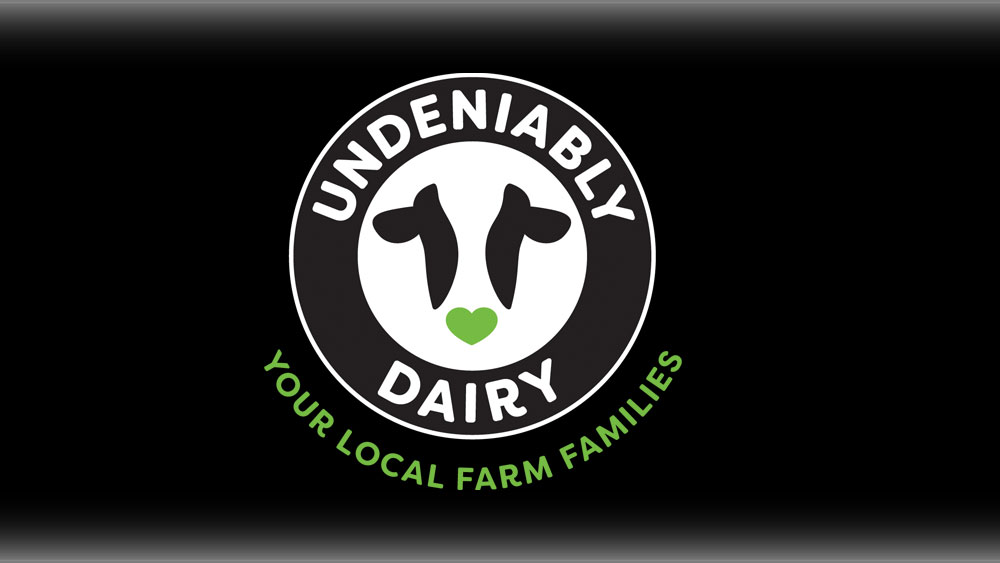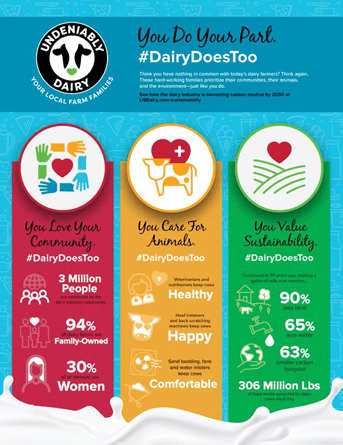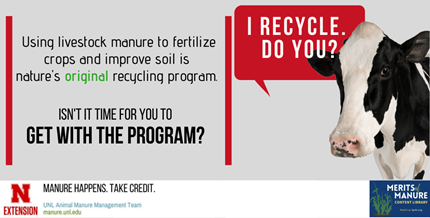
When you think about the delicious cheese on your pizza, a fresh yogurt and fruit smoothie, a cool cup of ice cream on a hot sunny day, a refreshing glass of chocolate milk after an intense workout, or the latest charcuterie cheese board you have tried to assemble, I am guessing that sustainability may not be the first thing you think of… but maybe it should be.
Given the importance of dairy nutrition for the growing global population, dairy’s impact on the environment might surprise you. In 2008, results from a lifecycle assessment showed that U.S. dairy contributes just 2% of all U.S. greenhouse gas emissions. While that number is low, the dairy community is committed to conserving natural resources and making further progress to get even better. The dairy community’s Net Zero 2050 goals support a vision that dairy IS an environmental solution.

Thanks to increasingly modern and innovative dairy farming practices, the environmental impact of producing a gallon of milk in 2017 shrunk significantly, requiring 30% less water, 21% less land and a 19% smaller carbon footprint than it did in 2007.
According to Juan Carlos Ramos-Tanchez, MS (Graduate Student majoring in Mechanized Systems Management), “when comparing milk production from 1960 to 2016, farmers are using the same volume of water while producing 400% more milk.” How is that possible? Water is not just a refreshing drink for dairy cows. One gallon of water can be reused up to four times. Reusing and recycling water is standard practice on today’s dairy farms. Water is used to cool milk and then recycled to clean and sanitize equipment, cool cows, clean barns and irrigate crops.

In addition to optimizing water use, dairy farmers care about the soil in their fields. As outlined by Agustin Olivo, Graduate Research Assistant, MS (Graduate Student majoring in Mechanized Systems Management), “dairy farmers are committed to effectively applying manure in fields to help facilitate root growth without the use of inorganic fertilizers to improve crop productivity. Additionally, manure as a natural fertilizer can improve the amount of water soil retains. As soil can hold onto more water, it can better withstand drought and erosion during drier seasons.” Now you can say, you have the full scoop on poop!
If you care about water conservation, environmental sustainability and leaving behind a better world for future generations, you have something in common with your local dairy farmers. Learn more about the Net Zero 2050 goals at https://www.usdairy.com/sustainability/environmental-sustainability.
Interested in learning more about how cows upcycle up to 306 million pounds of food and keep it out of landfills? CLICK HERE to WATCH!
Resources shared by Amy Millmier Schmidt, Ph.D., P.E., Associate Professor & Livestock Manure Management Engineer, https://www.themanurelady.com/.







